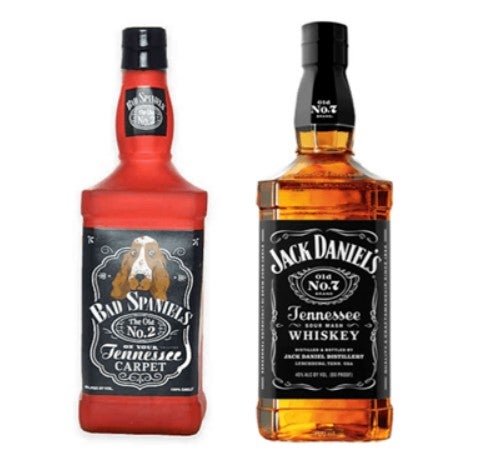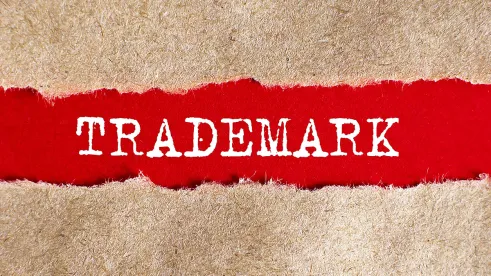Can a whiskey maker stop production of a copycat pet toy marketing itself as dog poo?
What are the First Amendment rights attaching to a parodic use of trade dress? And to what extent does the law allow the owner of a famous trade dress to stop production of a non-competing product that copies that trade dress (that is, the design and labels on a product package)? Those are two of the questions the Supreme Court will decide in Jack Daniel’s Properties, Inc. v. VIP Products, LLC. The case pits the owner of the trade dress of a liquor bottle labeled “JACK DANIEL’S Old No. 7 Brand Tennessee Sour Mash Whiskey” against a dog’s chew toy in the shape of a liquor bottle labeled “BAD SPANIELS Old No. 2 on your Tennessee Carpet.” Jack Daniel’s says its product is 40 percent alcohol by volume; Bad Spaniels claims to be “43 percent poo.” The products are shown below:

Trademark infringement cases require the trademark owner to prove that consumers will likely be confused as to the trademark owner’s association, source, or sponsorship with respect to the infringing product. But trademark dilution cases allow owners of “famous” trademarks or trade dress – ones generally recognized by the vast majority of the public, whether or not they purchase the product—to make a case without proving a likelihood of consumer confusion. To do so, the owner may prove “blurring” via the trade dress’ association in consumers’ minds with more than just a single source (that is, some source other than the trademark owner). Alternatively the trademark owner may prove “dilution by tarnishment,” that is, that the infringer’s use of the trademark/trade dress establishes a negative association in consumers’ minds (such as, for example, associating Jack Daniel’s with dog poo).
But to what extent does the owner of the accused product in this case have a First Amendment right to “express” the parodic content embodied in the chew toy? The Ninth Circuit found that First Amendment right trumped Jack Daniel’s claims for both trademark infringement and dilution. As to infringement, the Ninth Circuit found Jack Daniel’s had failed to establish that the defendant’s use of the Jack Daniel’s trade dress either (1) was not artistically relevant to the work (that is, the Black Spaniels bottle and its design and label); or (2) explicitly misleads consumers as to the source or content of that work. It also granted summary judgment to the defendant on Jack Daniel’s trademark dilution by tarnishment claim on the grounds that the defendant had used Jack Daniel’s trade dress and bottle design to convey a humorous message (and not merely to sell the Bad Spaniels product).
In their amicus brief to the Supreme Court, producers of alcoholic beverages argue that commercial speech is less entitled to First Amendment protection than noncommercial artistic expression (the chew toy is being sold for profit). They further argue Bad Spaniels is marketed to children, thereby undermining the producers’ efforts to promote responsible drinking. Is the Bad Spaniels’ product entitled to the same First Amendment protection as noncommercial art work (such as Andy Warhol’s famous Campbell’s soup cans)? Like those in the liquor business, the American Intellectual Property Law Association says no—and that the Ninth Circuit’s ruling should be overturned. Stay tuned to find out what happens next.




 />i
/>i

